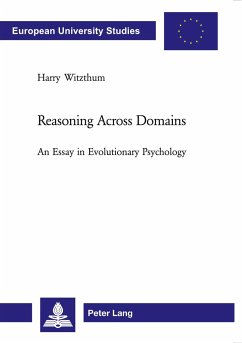Evolutionary psychology's ultimate goal is to understand the design of the human mind. It is a new approach in psychology, founded upon evolutionary theory and cognitive science. Evolutionary psychologists' insistence on evolutionary theory has given rise to both controversy and transformations in theoretical models of human cognition. It is still a minority position in the field of psychology, but evolutionary psychology's implications are far reaching.
This book examines the arguments put forth by evolutionary psychologists and the objections levelled against them by their critics. Can evolutionary psychology offer a promising strategy in psychology that should be taken seriously and which can be defended against its critics? That is one question this book investigates. But the book also proposes a new approach to tackle the evolution of general-purpose cognitive mechanisms, which is the main matter of dispute between traditional and evolutionary psychology. Is a credible evolutionary account of the development of general-purpose cognitive mechanisms possible? Evolutionary psychologists have scarcely addressed this question in their current research, this book proposes a new way of thinking about the question.
This book examines the arguments put forth by evolutionary psychologists and the objections levelled against them by their critics. Can evolutionary psychology offer a promising strategy in psychology that should be taken seriously and which can be defended against its critics? That is one question this book investigates. But the book also proposes a new approach to tackle the evolution of general-purpose cognitive mechanisms, which is the main matter of dispute between traditional and evolutionary psychology. Is a credible evolutionary account of the development of general-purpose cognitive mechanisms possible? Evolutionary psychologists have scarcely addressed this question in their current research, this book proposes a new way of thinking about the question.








